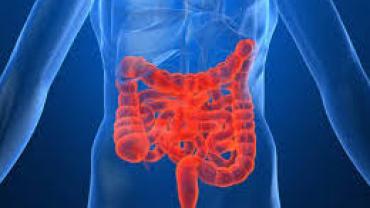
Irritable bowel syndrome (IBS) can be debilitating causing cramping abdominal pain bloating gas diarrhea and constipation. It can affect and ones work sleep and relationships.
According to a recent clinical trial published in Gastroenterology researchers at University of Michigans Health System demonstrated that a low FODMAP diet (Fermentable Oligo-Di-Monosaccharides and Polyols) significantly helped those with IBS. This study measured the degree of relief from a low FODMAP diet and showed improvement in symptoms as well as an increased quality of life in patients with this condition. This diet excludes many compounds found in wheat certain fruits and vegetables garlic onions and sugar substitutes.
Most treatments for IBS rely on medications which are usually ineffective and have numerous side-effects. A Low FODMAP diet is not a new treatment. Many integrative doctors already incorporate this type of diet for their IBS patients; however many of the dietary recommendations have not been backed by clinical trials. This new study gives credence to these recommendations.
Over a six week period dietitians educated and tracked the progress of over 90 IBS patients. Approximately 50% of the participants followed a low FODMAP diet and the remainder were in a control group that adhered to portion control and eliminating commons irritants such as caffeine and alcohol.
As a result over 50% of the patients on the low FODMAP diet had major improvement of their abdominal pain compared with only 20% of the control group. There was also additional improvement in bloating diarrhea and stool urgency.
It is common knowledge that diet is the most effective means to returning balance within the gastrointestinal system. One may need a combination of botanicals enzymes and probiotics to optimize the gastrointestinal environment. Certain diagnostic tests may also be beneficial including stool testing as well as food antibody testing.
For IBS we look at the bodies enteric nervous system to understand it better. This is considered to be the bodies second brain as it is made up of a self-contained complex network of neurons neurotransmitters and proteins embedded in the lining of the GI system. It’s what we consider the brain-gut connection. It is responsible for all aspects of the digestive process from the esophagus to the stomach and small and large intestines and may be responsible for IBS symptoms.
One particular nutrient that can offer support to patients with IBS is Perilla frutescens an herb native to Eastern Asia that demonstrates antispasmodic prokinetic and anti-inflammatory effects which help normalize and promote health bowel function and provide relief from GI symptoms. In addition there are some specific researched strains of Saccharomyces cerevisiae that have been shown to reduce digestive discomfort and abdominal pain in individuals with IBS.
By Michael Jurgelewicz DC DACBN DCBCN